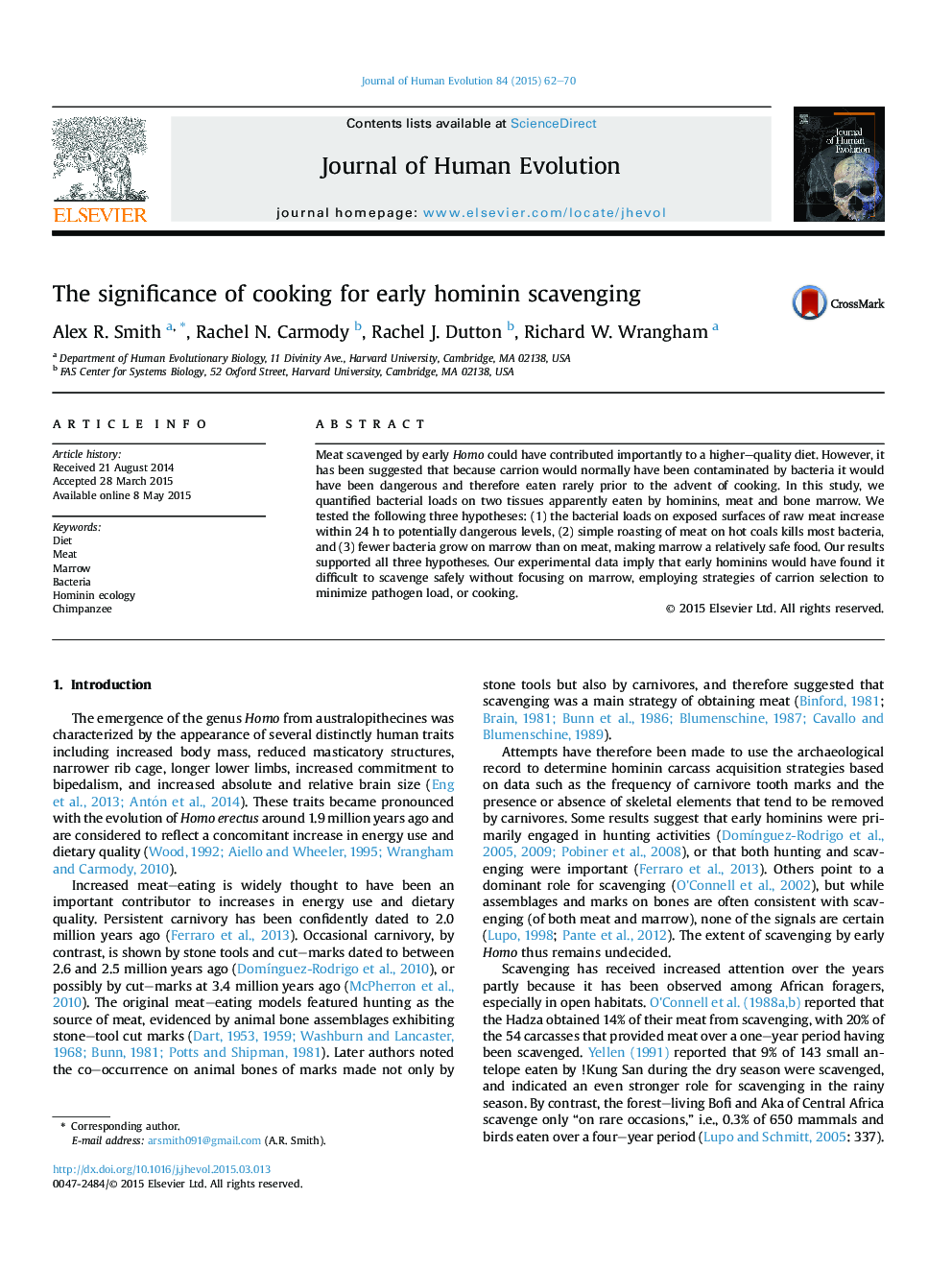| کد مقاله | کد نشریه | سال انتشار | مقاله انگلیسی | نسخه تمام متن |
|---|---|---|---|---|
| 4555959 | 1628165 | 2015 | 9 صفحه PDF | دانلود رایگان |
Meat scavenged by early Homo could have contributed importantly to a higher–quality diet. However, it has been suggested that because carrion would normally have been contaminated by bacteria it would have been dangerous and therefore eaten rarely prior to the advent of cooking. In this study, we quantified bacterial loads on two tissues apparently eaten by hominins, meat and bone marrow. We tested the following three hypotheses: (1) the bacterial loads on exposed surfaces of raw meat increase within 24 h to potentially dangerous levels, (2) simple roasting of meat on hot coals kills most bacteria, and (3) fewer bacteria grow on marrow than on meat, making marrow a relatively safe food. Our results supported all three hypotheses. Our experimental data imply that early hominins would have found it difficult to scavenge safely without focusing on marrow, employing strategies of carrion selection to minimize pathogen load, or cooking.
Journal: Journal of Human Evolution - Volume 84, July 2015, Pages 62–70
